Introduction
Imagine a world where your windows, doors, and even room dividers could seamlessly shift from transparent to opaque at the push of a button. Enter the realm of smart glass, a revolutionary technology that is reshaping modern interior design. In this blog, we’ll delve into the wonders of smart glass and explore how it is transforming the way we perceive and design living and working spaces.
What is Smart Glass?
At its core, smart glass is a groundbreaking material with the ability to modify its opacity, transitioning from a clear, transparent state to an opaque one using an electrical current, heat, or light. This technological innovation is leaving its mark on interior design by offering unparalleled control over privacy, light, and aesthetics.
Advantages of Smart Glass in Interior Design
Enhancing Natural Light and Adaptability
The infusion of natural light is a hallmark of contemporary interior design, and smart glass elevates this concept. By enabling windows, partitions, and even entire walls to instantly switch between transparent and opaque states, smart glass maximises the influx of sunlight whilst preserving privacy whenever required. This adaptability creates dynamic and versatile living and working areas.
Privacy Control and Personalisation
The days of conventional curtains and blinds for privacy are behind us. With smart glass, you can customise the opacity of your windows and dividers at will. Whether opting for a translucent finish to ensure a hint of privacy or a wholly opaque shield, the power is at your fingertips, adding an interactive dimension to interior design.
Applications in Residential Spaces
In the realm of residential interior design, smart glass is a game-changer. Windows that transition from clear to opaque offer a novel approach to privacy, while glass doors that can shift from transparent to translucent add an enchanting touch to bathrooms and bedrooms. Smart glass room dividers provide an ingenious means of segmenting spaces without compromising natural light.
Commercial and Corporate Environments
In the corporate world, smart glass is making waves. Conference rooms can seamlessly shift from transparent to opaque for presentations, ensuring privacy during sensitive discussions. Open-plan offices benefit from smart glass partitions that can be instantly transformed, providing employees the option of an enclosed workspace when required.
Impact on Health and Wellbeing
The interplay between interior design and our wellbeing is undeniable. Smart glass bridges this gap by allowing us to stay connected to the outdoors even when indoors. Its capacity to regulate sunlight and mimic outdoor conditions has a positive impact on our circadian rhythm, aiding in the improvement of sleep patterns and overall health.
Integration with Home Automation
Smart glass dovetails seamlessly with the concept of a smart home. Integration with home automation systems means you can control the opacity of your windows with a voice command or through a mobile app. It’s technology that not only enhances aesthetics but also simplifies daily life.
Energy Efficiency and Sustainability
In an age where sustainability is of paramount importance, smart glass shines brightly. By adjusting its opacity based on external conditions, it contributes to energy efficiency by reducing the necessity for artificial lighting and HVAC systems. This potential for energy saving aligns perfectly with eco-friendly building certifications and sustainable design practices.
Financial Considerations
The allure of smart glass might prompt queries about its cost. While the initial investment can be higher compared to traditional glass solutions, the long-term savings in terms of energy costs and enhanced durability make it a prudent financial decision. Factors such as the type of glass, installation complexity, and control systems influence the overall cost.
Challenges and Limitations
As with any technology, smart glass isn’t without its challenges. Maintenance and upkeep are pivotal factors to consider, as electrical components require periodic checks. Privacy concerns also come to the fore, as the technology’s responsiveness to electrical signals could potentially raise security issues.
Future Trends in Smart Glass
The evolution of smart glass is an exhilarating journey. Technological advancements are paving the way for thinner, more energy-efficient panels with enhanced features. Envision smart glass harmoniously integrating with augmented reality and virtual reality, transforming spaces into immersive experiences.
Selecting the Appropriate Smart Glass Solution
Choosing the right smart glass solution involves a comprehensive assessment of various factors. Consider the intended application, desired levels of opacity, integration with existing systems, and budget constraints. Consulting with experts in the field can facilitate informed decision-making.
Installation and Maintenance Guidelines
The installation process for smart glass is intricate yet manageable. It encompasses panel mounting, connection of electrical components, and integration of control systems. Regular maintenance ensures optimal performance, prolonging the lifespan of the glass and associated technology.
Conclusion
Smart glass has transcended conventional boundaries of interior design, ushering in an epoch of creativity, adaptability, and wellbeing. Its seamless amalgamation of technology and aesthetics offers a tantalising glimpse into the future of living and working spaces. As we continue to push the boundaries of what’s attainable, smart glass stands as a testament to human ingenuity and the limitless possibilities it bestows upon contemporary interior design.
Who We Are
Tecdur is the leading manufacturer of smart glass for the UK and Ireland. Tecdur Switchable Glass provides the best clarity, lowest power consumption and lowest haze currently available. We can offer a wide range of specifications to meet project requirements with our switchable glass, cost is dependent on specification, application and design. Please get in contact with us to discuss further.
Please visit our portfolio for a look at completed projects. Keep up to date on our LinkedIn Showcase page


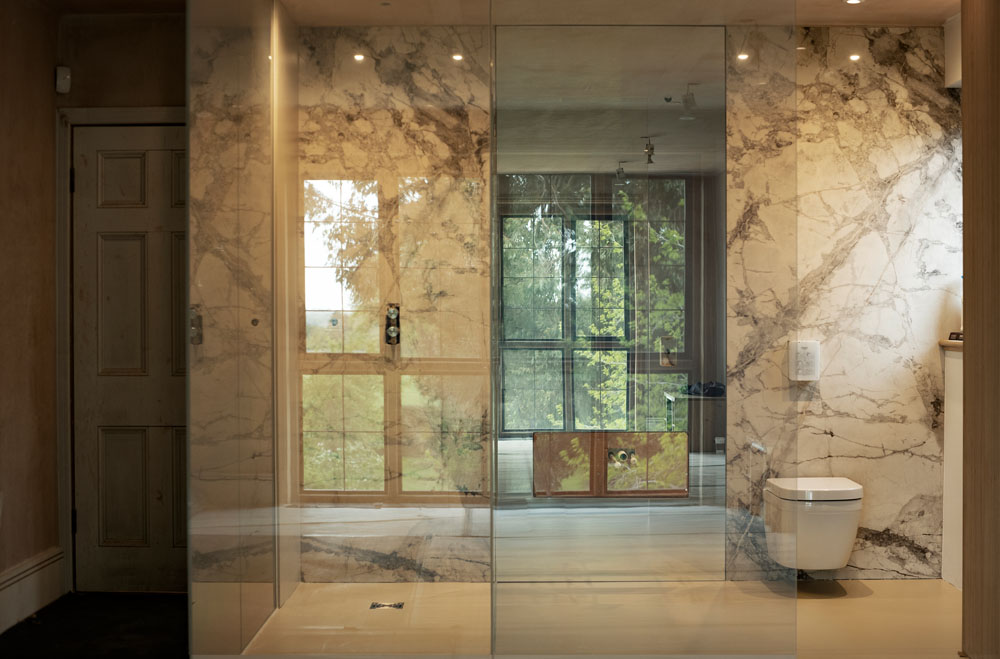
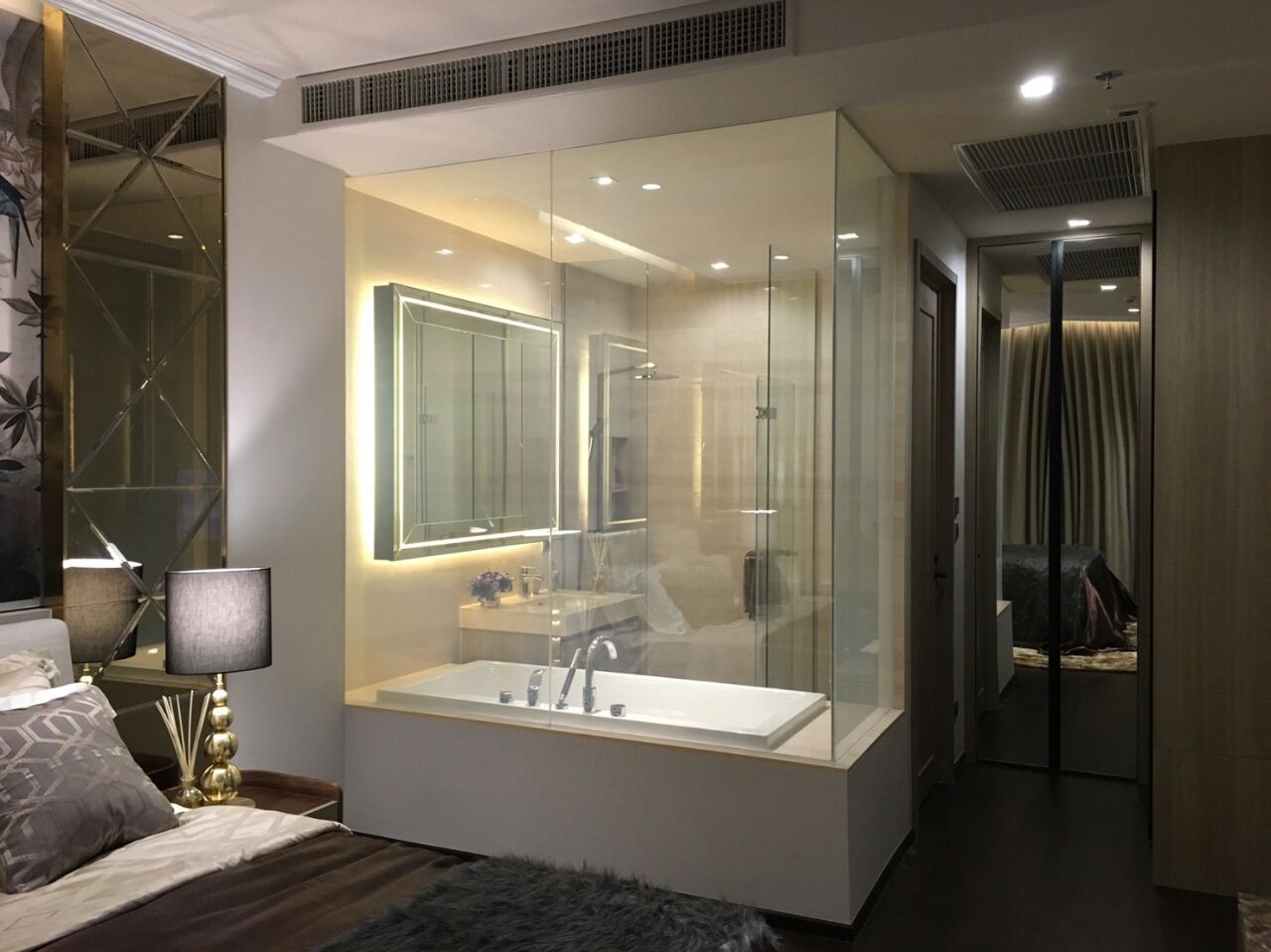
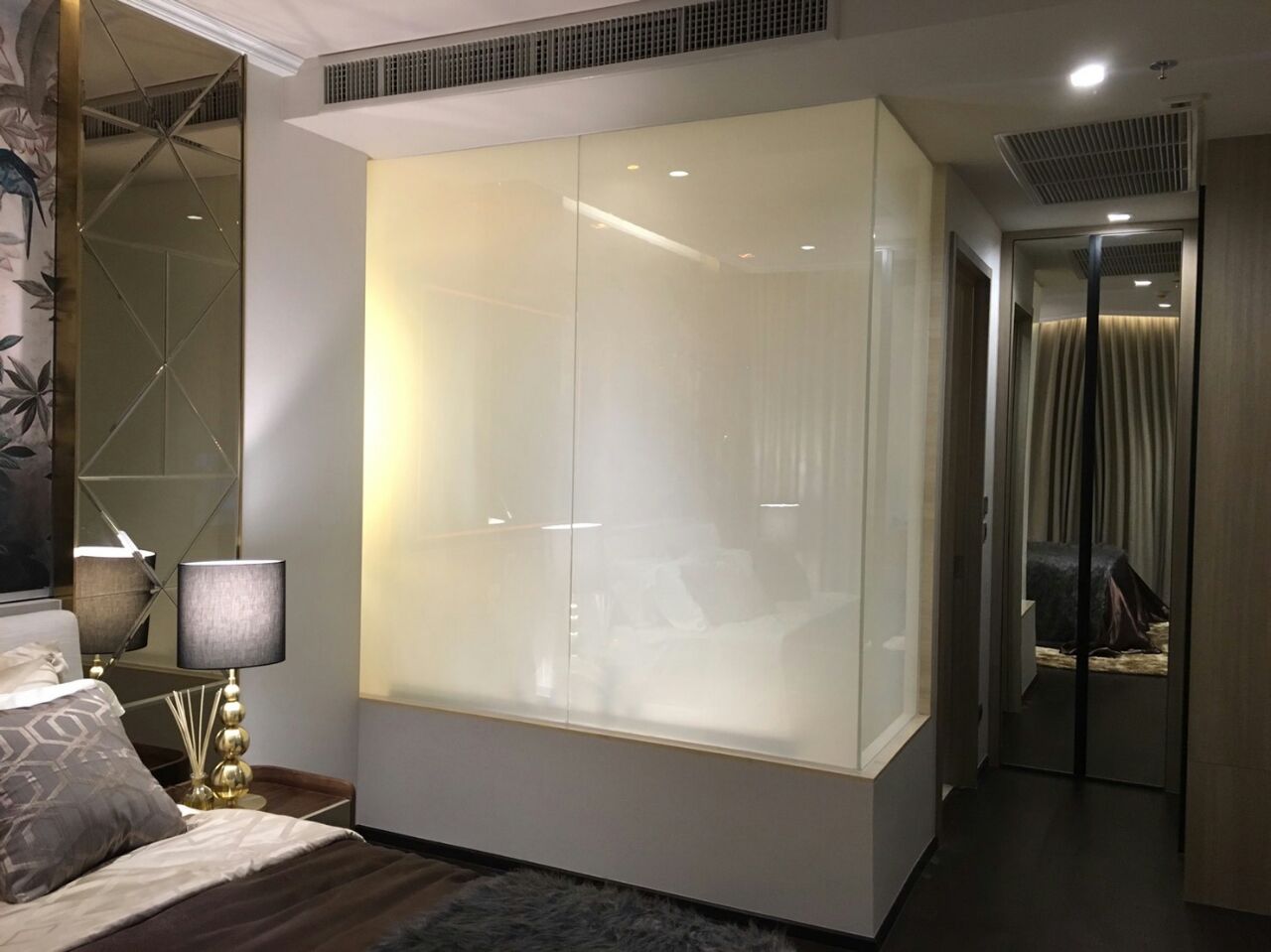
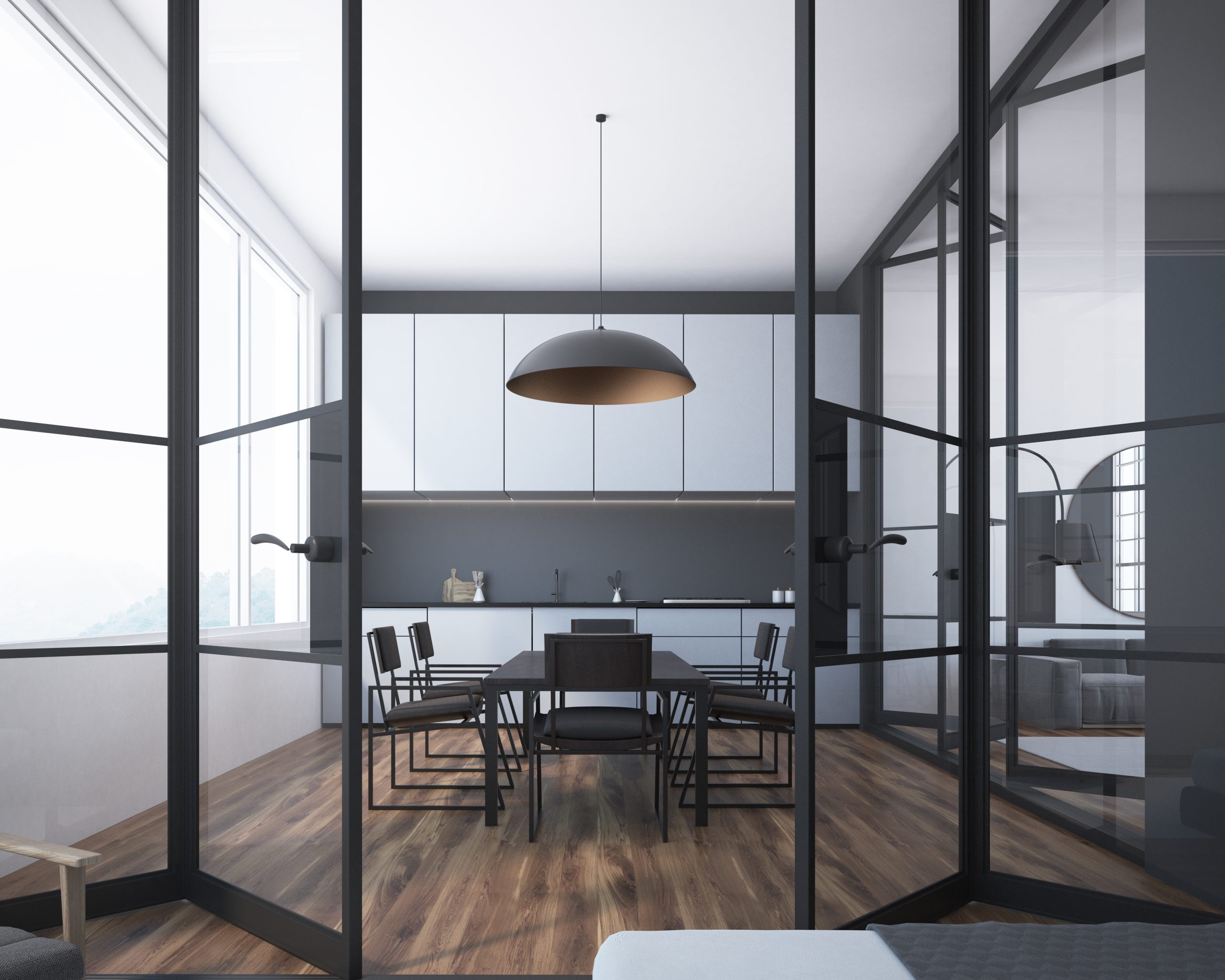
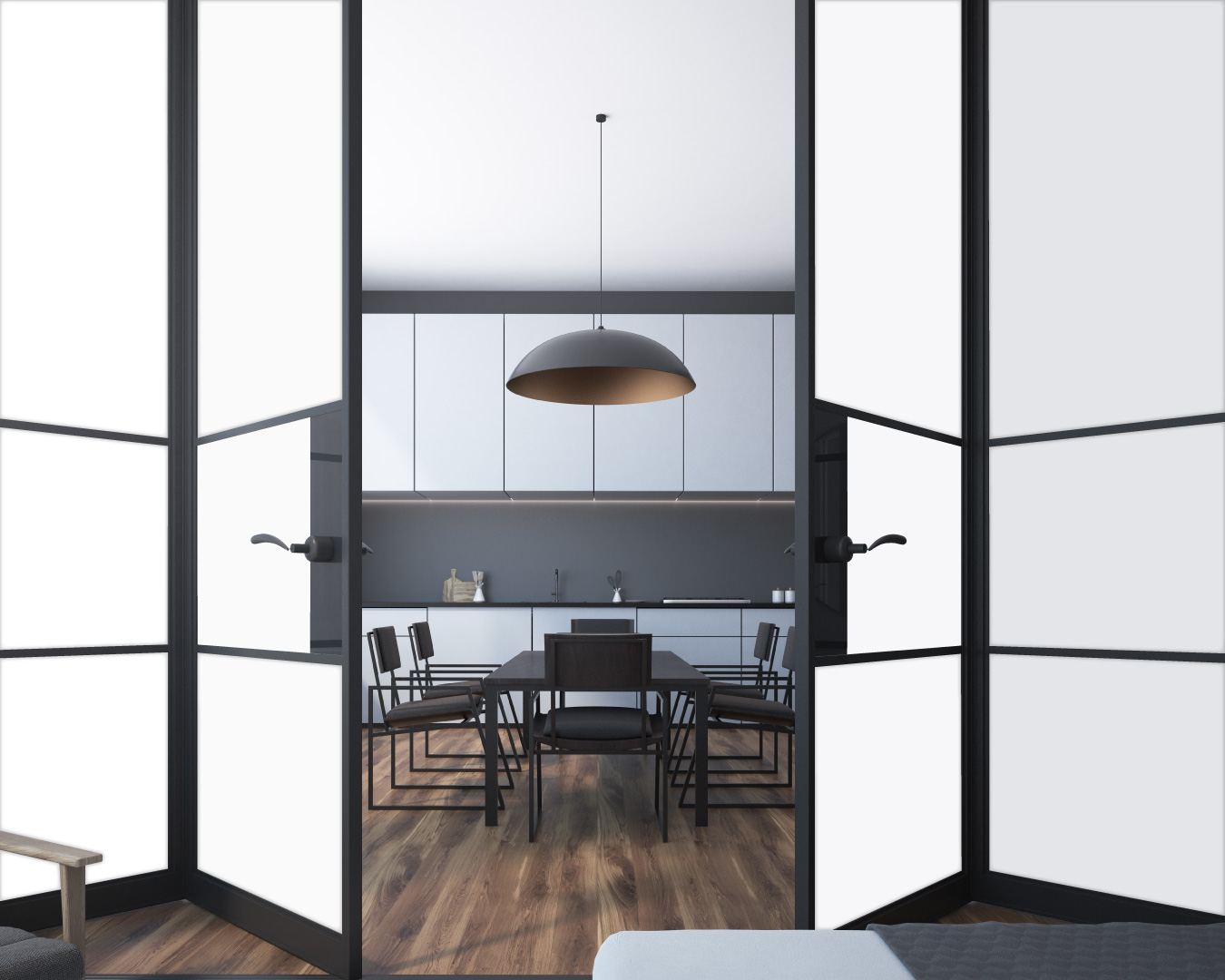
Frequently asked Questions
Our privacy glass works by utilising advanced PDLC (Polymer Dispersed Liquid Crystal) film. When an electrical current is applied, the liquid crystal molecules align, allowing light to pass through, making the glass transparent. When the current is switched off, the molecules mis-align, causing the glass to turn opaque or translucent, providing privacy.
Smart glass can be tailored to various window shapes and sizes, rendering it adaptable to diverse architectural designs.
Absolutely, numerous smart glass solutions offer mobile app integration, granting you the ability to control opacity using your smartphone.
Smart glass regulates natural light, reducing the requirement for artificial lighting and thereby diminishing energy consumption.
While infrequent, potential security concerns stem from the electrical control of opacity. Robust security measures can mitigate these risks.
With proper maintenance, smart glass panels can endure for many years, akin to standard glass panels.




